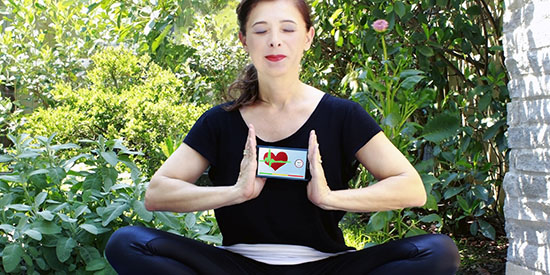Despite popularity not all apps will help you reach your goals: Deakin report
Media release
Australians are being urged to exercise caution when downloading health and wellbeing apps with new research from VicHealth and Deakin University finding most apps don't have the features that will help you be healthier.
The healthy living apps research released today found only two out of the 348 health and wellbeing apps reviewed got a four-star rating for their ability to help people change their behaviour and no apps were rated five stars.
Three-quarters of the apps were rated 2.5 stars or below and according to the researchers, meaning that for most people, these are unlikely to help to change habits when it came to their health and wellbeing, despite some charging over $15 for the initial download.
Despite the likely ineffectiveness of health apps, VicHealth has found apps are still incredibly popular with health-conscious Aussies, with over 30 per cent of people using apps to try to improve their health and wellbeing and 42 per cent of people trusting the health advice from their smartphone apps.
VicHealth Principal Advisor Dr Lyn Roberts cautioned people about spending big on apps, stating that on their own, smartphone apps were unlikely to be the holy grail in the quest for a healthier lifestyle.
"We know people are looking for a convenient fix when it comes to improving their health and wellbeing, and while some apps can be useful, most aren't going to do much to make you healthier," Dr Roberts said.
"Our research showed unfortunately most apps aren't based on evidence and are unlikely to help people create long-term healthy habits.
"Apps that were rated highest included those that allow people to set goals, track their behaviour, rewarded positive behaviour and send notifications and prompts. The great news is the apps that rated the highest in our research are free to download.
"But beware many apps might be free to download but have sneaky costs, like charging you to unlock features or make you pay for subscriptions.
"We encourage people wanting to use an app to improve their health to check out our healthy living apps guide to avoid downloading a complete lemon."
Apps that rated highly included Quit Genius - quit smoking, mindfulness training app Unwinding Anxiety, fitness tracker Fitbit and Hello Sunday Morning's Daybreak – drink less. Apps at the lower end
of the scale included Alcohol and Your Brain, fitness trackers 100 club and PUMPING WEIGHT, and workout tool Total Fitness - Gym & Workouts.
Lead researcher Dr Fiona McKay, from Deakin's School of Health and Social Development, said people needed to be careful in trusting apps for their health information.
"We looked for tools in apps that we know from the evidence have the best chance of helping people to achieve their goals," Dr McKay said.
"While there are some good apps out there, a lot of apps just don't have the features that will help people to be healthier. We want people to choose carefully, and find the app that is right for them.
"If you're going to use an app, use the free trial period to check out all of the features, and choose one that's been developed by an organisation you trust.
"Most people have a phone in their pocket all day, we think that using an app on a phone is one way to improve health and wellbeing, we just want to help people to choose the right app."
VicHealth and Deakin University's Healthy Living Apps research is available at www.vichealth.vic.gov.au/apps. The pages can be searched in a number of ways - by category, Apple or Android device, age group, price, and whether the app needs an add-on to work e.g., a fitness device. They can also be sorted by overall rating, name, highest price or lowest price.

